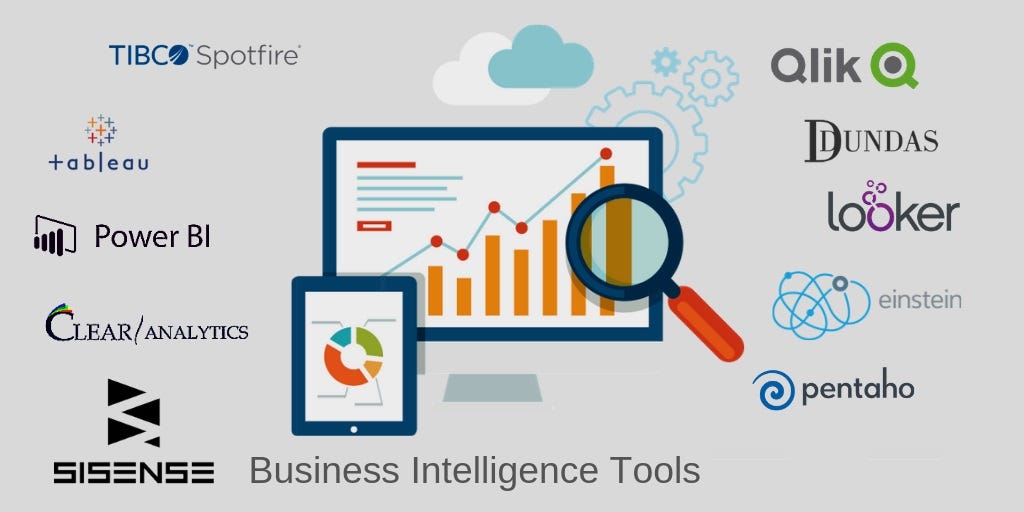Leveraging business intelligence (BI) tools has become imperative for organizations aiming to expand their footprint across borders. The right BI tools can empower decision-makers with valuable insights, aiding in the identification of new opportunities and mitigating risks associated with global market expansion.
Scope of Global Market Expansion
Expanding into new markets brings forth many challenges, from cultural nuances to regulatory complexities. BI tools play a pivotal role in helping organizations navigate this intricate landscape by providing a data-driven approach to decision-making. Before looking into the selection process, businesses must define the scope of their global market expansion and understand the specific challenges they might encounter in each targeted region.
Key Criteria for Choosing BI Tools
1. Scalability and Flexibility:
Organizations should opt for BI tools that can scale seamlessly with the growth of their operations. Flexibility is essential, allowing the BI infrastructure to adapt to diverse market requirements and data sources.
2. Multilingual Support:
Given the diverse nature of global market expansion for BI tools with multilingual support can facilitate smoother collaboration and ensure that insights are accessible to teams operating in different regions.
3. Integration Capabilities:
The chosen BI tools should seamlessly integrate with existing systems, ensuring a unified data environment. This integration capability is crucial for real-time data synchronization and a holistic view of business operations.
4. Global Data Governance:
Robust data governance features are essential for compliance with varied data protection regulations across different regions. BI tools should offer functionalities that enable organizations to maintain data integrity and security at a global scale.
5. Localization and Cultural Sensitivity:
BI tools that allow for the localization of reports and dashboards can aid in adapting insights to suit the cultural context of different markets. This ensures that decision-makers receive information in a format that aligns with local preferences.
Comparative Analysis of BI Tools
1. Power BI:
Microsoft’s Power BI is renowned for its user-friendly interface and seamless integration with other Microsoft products. With support for multiple languages and a robust global data center network, Power BI is a strong contender for organizations seeking a comprehensive BI solution for global expansion.
2. Tableau:
Tableau’s strength lies in its advanced data visualization capabilities. It supports multiple languages and offers connectors for various data sources. Tableau’s community-driven approach ensures a vast repository of resources for businesses expanding into different markets.
3. Qlik Sense:
Qlik Sense is praised for its associative data modeling, enabling organizations to uncover hidden relationships in their data. Its cloud-based deployment options and multilingual support make it suitable for businesses aiming for a scalable BI solution across diverse regions.
4. Looker:
Looker’s focus on data modeling and exploration is beneficial for organizations with complex data structures. Its centralized data platform facilitates collaboration across global teams, and the platform supports localization for tailored reporting in different regions.
Best Practices for BI Implementation in Global Markets
Thorough Training Programs:
Implement comprehensive training programs to familiarize teams across different regions with the chosen BI tools, ensuring maximum utilization and proficiency.
Continuous Monitoring and Optimization:
Establish a system for continuous monitoring of BI tool performance and periodically assess the need for optimization based on evolving business requirements.
Collaborative Decision-Making:
Foster a collaborative decision-making culture by encouraging teams from different regions to share insights and best practices through the online business intelligence software platform.
Customization for Regional Variances:
Recognize the unique business practices, regulations, and reporting requirements in each region. Ensure that the BI implementation allows for customization to accommodate these regional variances, promoting better alignment with local strategies.
Data Quality Assurance:
Implement stringent data quality assurance measures to maintain accuracy and reliability in the BI system. Establish standardized data validation processes to ensure consistency across global datasets, reducing the risk of misinformation and errors in decision-making.
Localized Data Governance Policies:
Develop and implement data governance policies that consider regional data protection laws and compliance requirements. Tailor policies to adhere to specific regulations in each market, ensuring that data handling practices are in line with local legal frameworks.
User Feedback Mechanisms:
Create channels for continuous feedback from users across different regions. Regularly solicit input regarding the usability and effectiveness of the BI tools, and use this feedback to make improvements or adjustments to better serve the diverse user base.
Multi-language Support and Accessibility:
Ensure that the BI platform supports multiple languages to accommodate diverse user groups. Additionally, prioritize accessibility features to guarantee that the platform is user-friendly for individuals with different language proficiencies and abilities.
Localized Training and Support Resources:
Provide training materials, documentation, and support resources in the languages spoken by the teams in various regions. This ensures that users have access to resources in their preferred language, facilitating better comprehension and utilization of the BI tools.
Integration with Local Systems:
Enable seamless integration with local systems and applications. This ensures that the BI platform becomes an integral part of the overall business ecosystem, allowing for a more holistic and efficient approach to data-driven decision-making.
Conclusion
Choosing the right BI tools is a strategic imperative for organizations aspiring to expand their market presence. The selection process should align with the unique challenges posed by different regions, emphasizing scalability, flexibility, and support for diverse languages and cultural contexts. By carefully evaluating BI tools against these criteria and learning from successful case studies, businesses can empower themselves with the insights needed to navigate the complexities of global market expansion successfully. The right BI tools not only provide a competitive edge but also pave the way for sustainable growth in an interconnected world.
